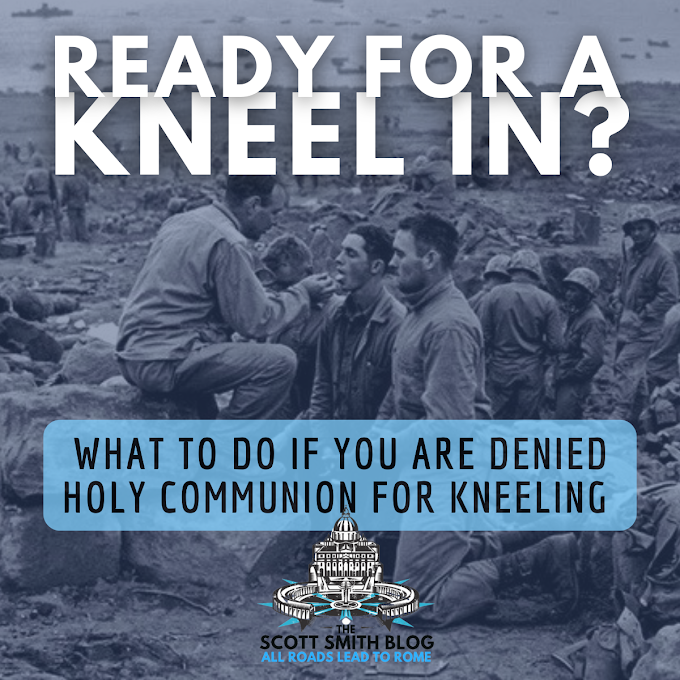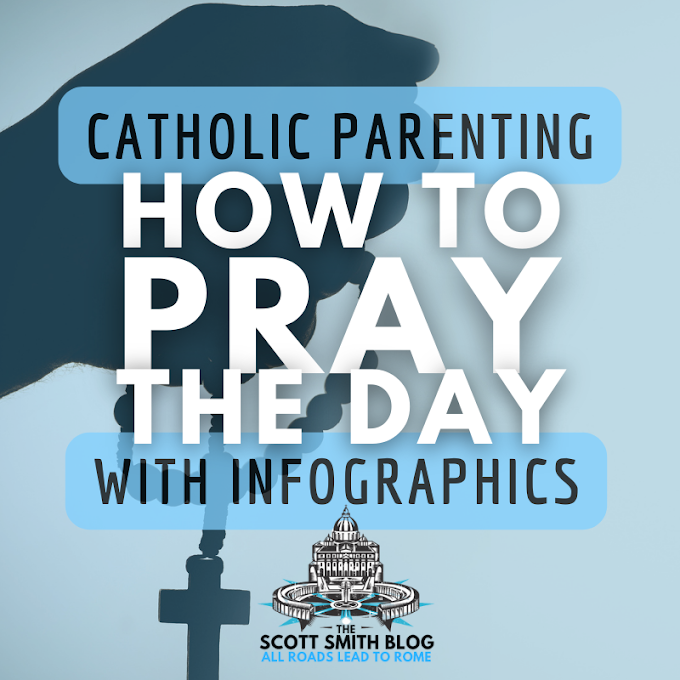Have you ever wondered about Nathanael's strange remark in the Gospel of John? When told about Jesus of Nazareth, Nathanael responded "What good can come from Nazareth?" (John 1:46) Since there are no throw-away phrases in the Gospels, especially in John's Gospel, what could this mean?
Was it just that Nazareth was a rural, backwater sort of place? No, there's much, much more.
In the very last verse of his Gospel, John wrote this: "But there are also many other things which Jesus did; were every one of them to be written, I suppose that the world itself could not contain the books that would be written" (John 21:25).
If this is true, we know John wouldn't just waste space with a useless line. So what gives? What insight does this give us into the mysteries of Christ? Stay tuned! This seemingly inconsequential phrase is actually the fulfillment of an ancient prophesy.
First off, let's dig into this mysterious passage from the first chapter of the Gospel of John (in red):
The next day Jesus decided to go to Galilee. And he found Philip and said to him, “Follow me.” Now Philip was from Beth-sa′ida, the city of Andrew and Peter. Philip found Nathan′a-el, and said to him, “We have found him of whom Moses in the law and also the prophets wrote, Jesus of Nazareth, the son of Joseph.”
Who is "Him of whom Moses" and the prophets wrote? Moses wrote at Deuteronomy 18:15 that “The Lord your God will raise up for you a prophet like me from among you, from your brethren—him you shall heed." Interesting side note: what was the name of the leader of the Israelites who immediately followed Moses? Joshua. Guess what the name Joshua translates to in Aramaic, the language Jesus spoke! "Joshua" translated to Yeshua or "Jesus." More on this a bit later ...This "prophet like unto Moses" is what Philip is referencing (more on what the Prophets wrote in a minute). So Philip is announcing the arrival of the long-prophesied, long-awaited New Moses, the Messiah, who will lead a New Exodus to a New Promised Land via a New Passover ... but Nathanael doesn't seem too excited:
Nathan′a-el said to him, “Can anything good come out of Nazareth?” Philip said to him, “Come and see.” Jesus saw Nathan′a-el coming to him, and said of him, “Behold, an Israelite indeed, in whom is no guile!” Nathan′a-el said to him, “How do you know me?” Jesus answered him, “Before Philip called you, when you were under the fig tree, I saw you.” Nathan′a-el answered him ... (1:43-49 RSV-CE)
"You mean you were spying on me? That's sorta creepy!" No ... that's not what Nathanael said. Pay attention when Scripture zags when it seems like it should zig. Something important is always about to happen. This is how Nathanael actually answers Jesus:
“Rabbi, you are the Son of God! You are the King of Israel!” Jesus answered him, “Because I said to you, I saw you under the fig tree, do you believe? You shall see greater things than these.” And he said to him, “Truly, truly, I say to you, you will see heaven opened, and the angels of God ascending and descending upon the Son of man.”(1:49-51 RSV-CE)
The Prophesy of the Righteous Branch
To get to the answer, here is one of the many times the great prophet, Jeremiah, announced the coming of the Messiah:
Behold, the days are coming, says the Lord, when I will raise up for David a righteous Branch, and he shall reign as king and deal wisely, and shall execute justice and righteousness in the land. In his days Judah will be saved, and Israel will dwell securely. And this is the name by which he will be called: ‘The Lord is our righteousness.’" Jeremiah 23:5-6
Jesus would be the son of David, i.e. a descendant of David, according to the flesh, according to Romans 1:3. This is why we are given the genealogy of Jesus at the beginning of Mathew’s Gospel. But what of this “righteous Branch”?
There shall come forth a shoot from the stump of Jesse,
and a branch shall grow out of his roots.
And the Spirit of the Lord shall rest upon him,
the spirit of wisdom and understanding,
the spirit of counsel and might,
the spirit of knowledge and the fear of the Lord.
And his delight shall be in the fear of the Lord.
and a branch shall grow out of his roots.
And the Spirit of the Lord shall rest upon him,
the spirit of wisdom and understanding,
the spirit of counsel and might,
the spirit of knowledge and the fear of the Lord.
And his delight shall be in the fear of the Lord.
The “stump of Jesse”? What is that and who is Jesse? Jesse is David’s father. The tree that grew from Jesse was David and the lines of kings which succeeded him. When the line of kings was broken, the tree was cut down, leaving only a stump. A "shoot" springing forth from the "stump of Jesse" is the New David, the Messiah, who will restore Israel. Make sense?
So what does this have to do with what good, bad, or ugly comes out of Nazareth? Here's one last oracle from the Prophets. This time, we read from Zechariah:
Hear now, O Joshua the high priest, you and your friends who sit before you, for they are men of good omen: behold, I will bring my servant the Branch. For behold, upon the stone which I have set before Joshua, upon a single stone with seven facets, I will engrave its inscription, says the Lord of hosts, and I will remove the guile of this land in a single day. In that day, says the Lord of hosts, every one of you will invite his neighbor under his vine and under his fig tree.” (Zech 3:8-10)
What?! Did you just hear that thunderclap? Remember "Joshua" from above? Remember "guile" from the Gospel passage? Does "under the fig tree" sound familiar? Nathanael, too, probably heard that same thunderclap when, at last, he understood Jesus' words, and that he, Nathanael, was now living the fulfillment of Zechariah's oracle.
But there's still MORE ... What about this Branch we keep hearing about? How does that fit in with Nathanael and "What good can come from Nazareth?"
What, Not Where, is Nazareth?
This brings us to the best part. How does the nowhere town of Nazareth fit in to all this? The town of Nazareth is only a couple centuries old at the time of Christ. It's too far from Jerusalem, far removed from the center of action. It's too new to have been mentioned by the Prophets, much less Moses. Or is it?
... Or is there? What if the Prophets have been talking about "Nazareth" all along?
The question is what does "Nazareth" mean in Hebrew? Better yet, what is the word for BRANCH in Hebrew? The answer is the same! The Hebrew word for "branch" is netzer, which is spelled NZR, same as "Nazareth." "Nazareth" means "branch" in Hebrew! Jesus shall be called the "Righteous Branch" - "He shall be called a Nazarene."
This realization, along with the significance of sitting "under the fig tree", is what came flooding over Nathanael when he began speaking with Jesus. This is why Nathanael responded with the exclamation, “Rabbi, you are the Son of God! You are the King of Israel!” Jesus is the Branch, the Netzer, shooting up from the Stump of Jesse. He is the New David, the New King of the New Kingdom of the New Israel.
Can you imagine how foolish Nathanael must have felt later, when he remembered saying to Philip "What good can come from Nazareth?" Can you imagine the facepalm? He had unwittingly made a great pun, but the joke was on him. I'm sure Philip must have reminded his friend of it many, many times. That's probably why it became part of the Gospel!
If you enjoyed this article, you will love Dr. Scott Hahn's 6-part Bible study on the Gospel of John. It's available for free at the St. Paul Center for Biblical Theology. Also, here are some more great resources that draw out this and other amazing links in Scripture:
Please remember to share this article and comment below. To help with the comments, but also to help those of you who are using these posts as a Bible study, I've provided some Discussion Questions below:
Discussion Questions
1. Has God ever taught you a lesson in the manner of Nathanael? Have you ever been the butt of your own joke?2. Has God ever invited you into a deeper knowledge of Scripture with a puzzling phrase or passage like "What good can come from Nazareth"? What other passage first appeared to you as puzzling and then became the key to a much greater understanding?
3. St. Augustine said that the "The New Testament lies hidden in the Old Testament, and the Old is unveiled in the New." How do you find this to be true in the above passage from the Gospel of John?













34 Comments
A kindred in this kingdom family of benefactors to His preposterous grace, Kate
The comment to guile or deceit, our rector, referenced to the deceit of Jacob to deceive his birth father to obtain the birthright of his brother, Esau. This deceit or guille was known of course to almighty God and the ' tussle Jacob had afterwards in ' arguing ' with God to justify his actions. Eventually this was to God to tell Jacob to change his name to Israel which means peace . This now asks the question from me are the people of Israel to live in peace?
I did consider why the comment was made about Nazareth as must be significant and decided to look this up
Thank you so much for this as it has revealed words of Scripture which further confirm the New Testament as the fullfilment of the prophecies of the Old Testament to our Lord Jesus Christ as the Messiah.
The WORD of GOD IS the ' ARMOUR ' ' all Christians need, now more than ever to defend Christian faith, so to defend and OBEY the Word of God and Jesus as the Righteous Saviour for everyone , as the risen Lord, our good Lord Jesus Christ, the only Son of almighty God is the only true intercessor to almighty God in the New Covenant of God with His creation of humans created in His image and VIRTUES.